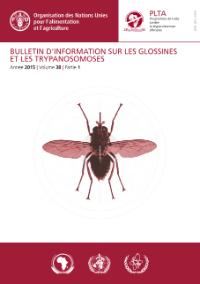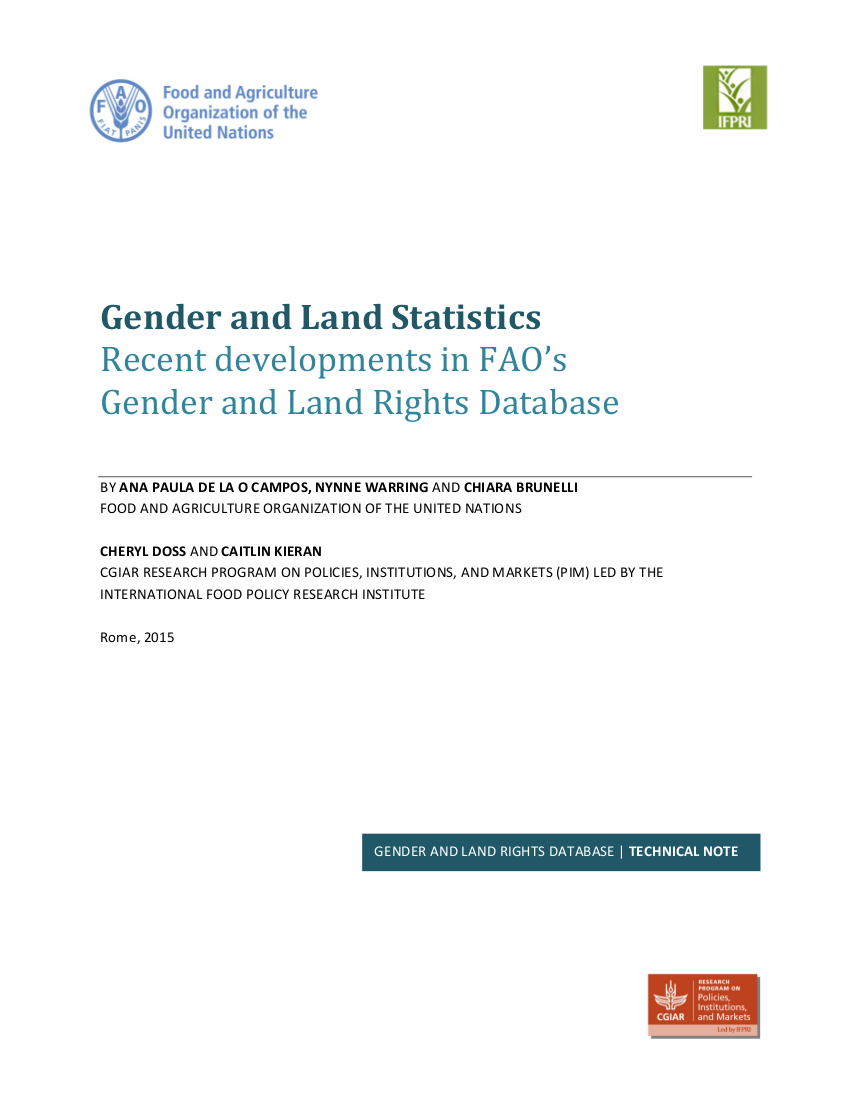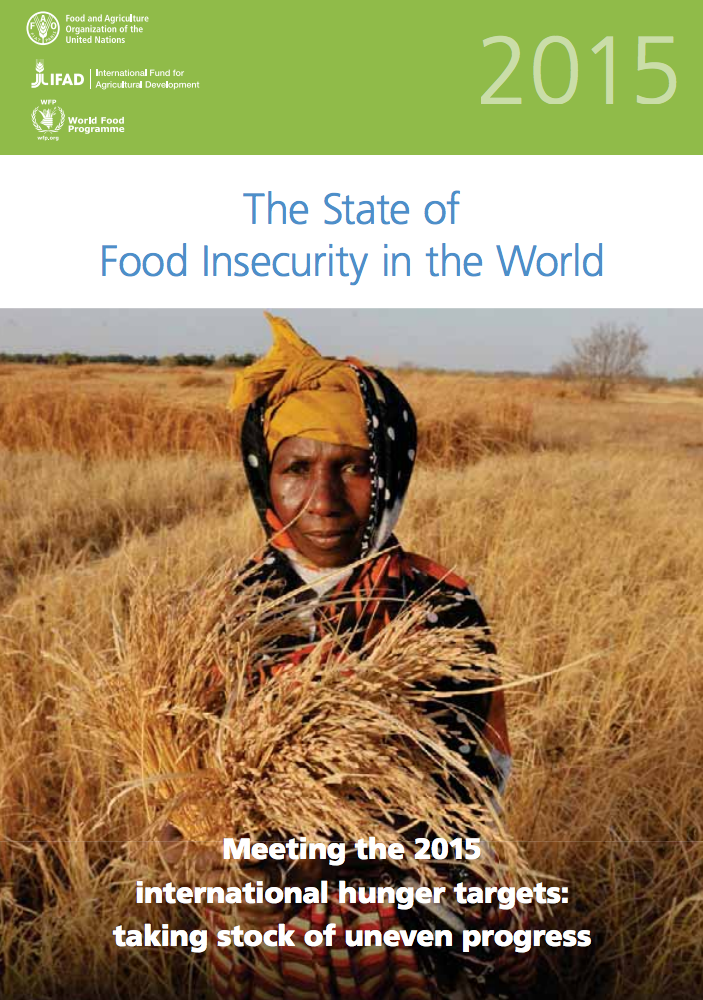Focal point
Location
The Food and Agriculture Organization of the United Nations leads international efforts to defeat hunger. Serving both developed and developing countries, FAO acts as a neutral forum where all nations meet as equals to negotiate agreements and debate policy. FAO is also a source of knowledge and information. We help developing countries and countries in transition modernize and improve agriculture, forestry and fisheries practices and ensure good nutrition for all. Since our founding in 1945, we have focused special attention on developing rural areas, home to 70 percent of the world's poor and hungry people.
Members:
Resources
Displaying 1406 - 1410 of 5074Status of the World’s Soil Resources (SWSR) – Main Report
The SWSR is a reference document on the status of global soil resources that provides regional assessments of soil change. The information is based on peer-reviewed scientific literature, complemented with expert knowledge and project outputs. It provides a description and a ranking of ten major soil threats that endanger ecosystem functions, goods and services globally and in each region separately. Additionally, it describes direct and indirect pressures on soils and ways and means to combat s oil degradation.
Bulletin d'information sur les glossines et les trypanosomoses, Année 2015, Volume 38, Partie 1
Le Bulletin d’Information sur les Glossines et les Trypanosomoses a été créé pour diffuser les informations courantes sur tous les aspects de la recherche et de la lutte contre les glossines et la trypanosomose à l’intention des institutions et des chercheurs qui s’intéressent au problème de la trypanosomose africaine.
Gender and Land Statistics
Although there is global consensus that women’s land rights are fundamental for the realization of food security and rural development, accurate and reliable statistics to monitor the attainment and realisation of these rights are still lacking. Indeed, the lack of clear and accurate statistics on landownership and land management– that are disaggregated by sex - is problematic for developing clear policy responses to, and for monitoring of, inequalities faced by women and men in rural areas (Doss et al. , 2015).
Gender and Land Statistics
Although there is global consensus that women’s land rights are fundamental for the realization of food security and rural development, accurate and reliable statistics to monitor the attainment and realisation of these rights are still lacking. Indeed, the lack of clear and accurate statistics on landownership and land management– that are disaggregated by sex - is problematic for developing clear policy responses to, and for monitoring of, inequalities faced by women and men in rural areas (Doss et al. , 2015).
The State of Food Insecurity in the World 2015
This year´s annual State of Food Insecurity in the World report takes stock of progress made towards achieving the internationally established Millennium Development Goal (MDG1) and World Food Summit hunger targets and reflects on what needs to be done, as we transition to the new post-2015 Sustainable Development Agenda. The report reviews progress made since 1990 for every country and region as well as for the world as a whole.










